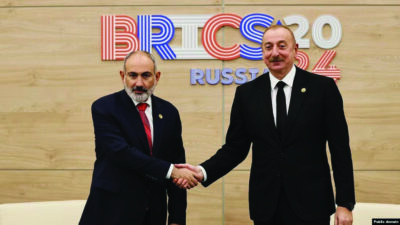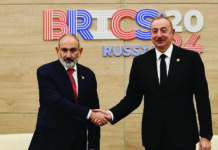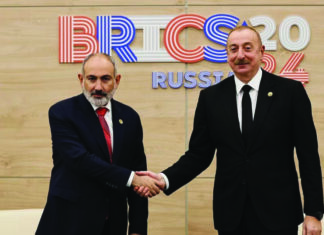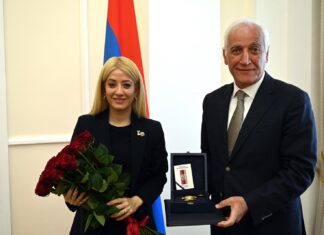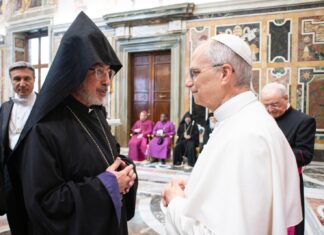PARIS (France 24) — Azerbaijan’s February 7 presidential election, which handed President Ilham Aliyev an unsurprising and unopposed victory with 92% of the vote and a fifth term in office, provided the backdrop for the latest illustration of deteriorating Franco-Azerbaijani relations.
For the first time in at least a decade, there were no French elected representatives or independent observers on the team of international observers monitoring the vote. As Aliyev tightens his grip on power and the country’s electoral system, there were fewer West European nationals on the international monitoring team. But a few German, Austrian, Spanish and Italian nationals did make it on the observer mission.
Escalating Tensions
The absence of a French presence on the observer team is the result of a disaccord between France and Azerbaijan. French parliamentarians who have visited the former Soviet republic in the past as election observers no longer want to hear about it. “When you have a president who systematically gets elected with over 80% of the vote, I wouldn’t call that free and fair elections,” said Claude Kern, senator from France’s eastern Bas-Rhin region, who was part of the French delegation for the 2018 presidential election.
Even the Association of Friends of Azerbaijan at the National Assembly, France’s lower house of parliament, has experienced an exodus of almost all its members in recent months.
